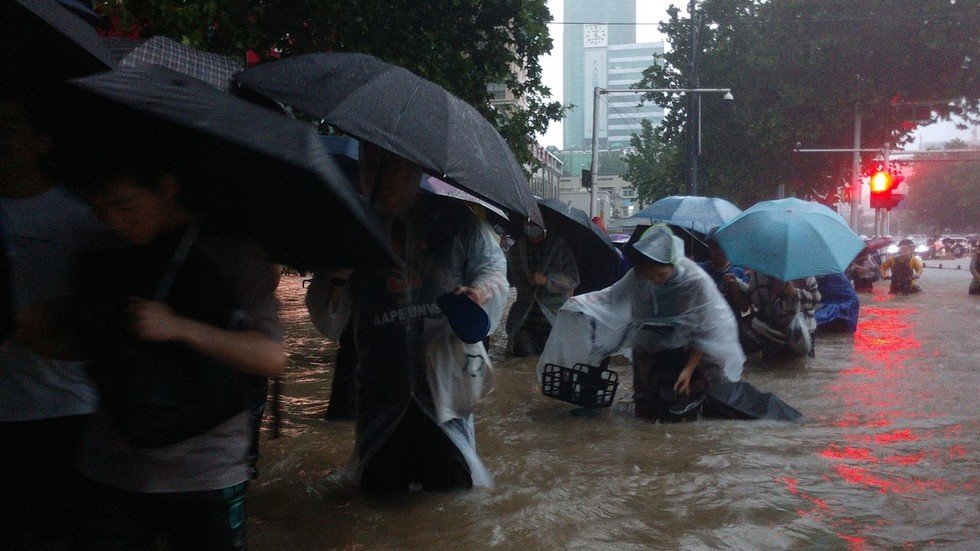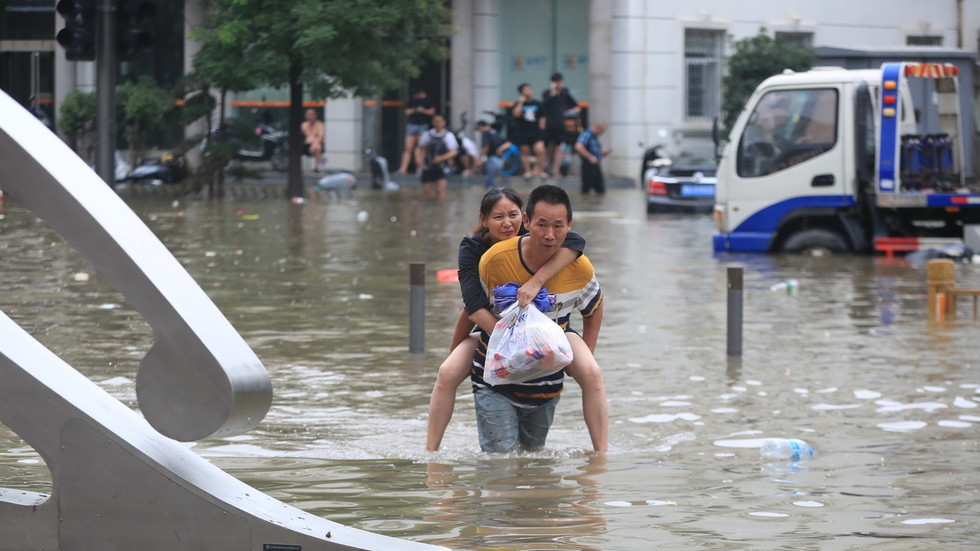Reporter: "If you could just say your name in advance, please?"
Cornelia Weigand:
"My name is Cornelia Weigand, I am the mayor of the association municipality of Altenahr. Altenahr is the association municipality which had villages/towns on the Ahr [creek name] from Hönningen Liers to Dernau, and a couple of high-area-villages. We have 12 villages.
We have been catastrophically affected by this storm. All the storms that have ever been here, all the floods, are nothing compared to what happened. It is without exaggeration an apocalypse. A huge flood wave has rolled through the valley, sweeping away all our bridges, tearing away large parts of the roads, the infrastructure has collapsed. Many people have lost their houses completely, some of the houses have collapsed, unfortunately with people in the houses.
Many houses have been flooded up to the second and third floor. People have partly been able to flee to the roofs and hills in the towns. We have many dramatic hours behind us and have already experienced a great deal of solidarity. Fortunately, air rescues slowly took place yesterday.
We hope to have established contact with all the isolated villages for the first time this evening. We had not had any contact at all for days with some of these isolated villages: neither by radio nor by sight or otherwise.
At the moment, the focus is still on rescue because there are still people trapped, partially trapped, or scattered somewhere in the woods who need to be evacuated or who may still be rescued from houses.
Simultaneously, great amounts clearing up is also taking place at the moment, so that people in the villages can get drinking water and food. There is no electricity, no running water, there is no mobile phone reception. And those who can still receive something somewhere [find that] the batteries [of the cell phones] are empty.
So it's a really catastrophic situation. There's a lot of solidarity even among people who live a little higher up and aren't as affected, who come with shovels, who come with chainsaws, who come with food, water and clothing. But it's a huge mountain.
We need a lot of financial support from the state and the federal government to rebuild the infrastructure. We're talking about damage that will run into the billions, simply because many roads are completely gone and all the bridges are completely washed away. We still fear for the lives of many people. The last number I heard on TV this morning is that there are about 1300 people missing in the whole area.
We hope that many of these people will simply turn up, because they have not yet been able to make contact to anyone. We also don't know who has not yet been reported missing.
With us here it is simply clear, we have already many people.... uhmm...uhmm... or uhmm... many fortunately not yet.... but we definitely lost some people. And for many [their survival] is still questionable: we still have to go into houses that were completely flooded, that are still closed, where according to the last information people were sighted. We don't know if these people could still get out, if we can still find them, we hope very much.
We have experienced some moments of happiness, but we also have a lot of losses and that's just the situation at the moment. It is indescribable, everyone is working at the limit. We are very happy that fire departments from all over [Germany] are here. The THW [Federal Agency for Technical Relief] is there with heavy equipment.
Meanwhile, the federal police are also deployed now with evacuation tanks, and the Bundeswehr is there. We are also getting more and more medical support, but here in particular we are still in the process of building up.
We are also trying to build up infrastructure as far as it is possible; to bring electricity back to those places where there are still lines - water lines, power lines - because a lot of things have simply been torn away. Some places that are connected to mountains we could partially open up (in terms of electricity and water], but there are many villages where it is clear: they will remain relatively long without electricity and water. Yes, that is the current situation here.
There has never been anything like this before. There was the Nepomuk bridge in the village of Rech, a stone bridge. I think it was in 1910; there was a very big flood that washed away all the bridges on the Ahr River, leaving only the Nepomuk Bridge standing. This Nepomuk bridge was also washed away in the current flood. There were houses that stood for centuries on the Ahr that are now partly completely washed away or partly demolished, so you can imagine that what we have experienced here has never happened.
[...] but this flood that we have experienced here was... The flood 5 years ago, in 2016, was a flood of the century. In that flood of the century in 2016, the water level was almost 3.70 meters in Altenahr. Our own house is about 1.5 meters higher than this record level mark from 2016. In the flood that happened now, the water in our house was at the window height of the second floor [!!!]. That means the water level now was about another six meters higher than in 2016 [!!!]. That means the flood now was about 2.5 to 3 times higher than in 2016: that's incredible! And the water rose at such a speed that some people could no longer save themselves on foot, they couldn't get out."


